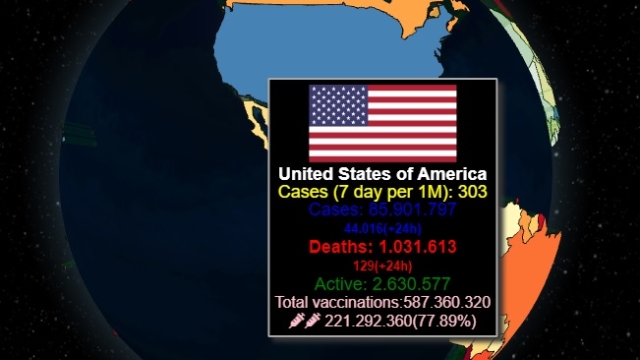Looking for Climate Change Statistics? If you are worried about the consequences of climate change, we want to show you the statistics by country regarding global warming. At infoworldmaps.com we are the best website for 3d interactive maps. If you want to know more about the consequences of climate change, here you will find a climate change map by countries.

Interactive 3D Climate Change map
Climate change what is?
Climate change constitutes the greatest threat facing humanity in terms of the environment. Climate change is the global variation in the Earth’s climate. This variation is due to natural causes and the action of man and occurs on all climatic parameters: temperature, rainfall, cloudiness, etc., at very different time scales.
Climate change effects
The main cause of climate change is global warming and it has multiple negative consequences on physical, biological and human systems, among other effects.
Climate change statistics
A lot of scientists from all countries implore humanity to save the planet because climate change statistics are very bad year by year. As we reported in another article, they point out that the situation has worsened so much in the last 25 years that drastic changes, both political and in individual behavior, are essential to avoid collapse.
These scientists are calling for social mobilization so that politicians and citizens react, respect nature and change the energy model. They are meeting at the Alliance of World Scientists to bring together more scientists, raise their voices and be heard about the urgency of ensuring the sustainability of the planet and human well-being.
Climate change facts
- The surface of the Earth is warming.
- The general temperature rise of the Earth is measurable.
- The seas of the world are warming and rising.
- Human activity is the main driver of temperature rise on Earth.
- Carbon dioxide from burning fossil fuels causes most of global warming.
Climate change consequences
In this video you can see climate change statistics and consequences, we need to stop and reduce the pollution of our planet.
Climate change solutions:
- Reduction of waste generation:
Waste has become a real problem in the big cities of the planet. So much so, that according to National Geographic in a report from 2018, each year 8 tons of plastics end up in the sea, waste from the land. This is favored by an economic model where the vast majority of products with plastic are disposable. For example, according to Forbes Mexico magazine, in 2020 this country led the list in waste production in Latin America for generating 1.16 kg per inhabitant per day. That is why one of the solutions for climate change in Mexico must be directed in this line.
- Education:
It is the first time that scientists address this issue. They propose education to improve learning and the resilience of society, but also to preserve the environment, including regional climate information and knowledge systems in decision-making.
- Restoration of terrestrial and marine habitat:
This can improve ecosystem-based adaptation. Obtain ecosystem management tools such as assisted species relocation and coral gardening.
- Self-sufficiency:
This solution aims to reduce dependence on raw materials and external products that cost tons of GHG emissions. For this, it would be necessary to increase the sustainable industrial fabric in a more localized way.
- Energies:
Another important change to solve climate change is the change from the current energy model, supplied with fossil fuels, to one where GHG emissions are close to zero. This is achieved by feeding our energy demand with energy from clean sources, such as solar or wind. Thanks to this important change, the greenhouse effect would be drastically reduced.
- Political compromise:
It is necessary for all countries to make agreements and establish mandatory measures to tackle climate change. However, not all countries could have the same requirements, since the most polluting countries should be the most committed, as well as those that should lead the change of model.
Climate change how can i help?
We need the commitment of the majority of citizens in the world and try to contribute little things from our way of life and we need you to fulfill the political commitments to reduce emissions and thus help to stop climate change.
Problems about climate change statistics
Here we present the main problems of climate change:
Increased heat, drought and insect outbreaks, all linked to climate change, have increased wildfires. Declining water supplies, reduced agricultural yields, health impacts in cities due to heat, and flooding and erosion in coastal areas are additional concerns.
Investments in climate change & Climate change investors
Last year, Spainsif, at its annual forum, presented the study “Investments and climate change” that confirms the sensitivity of the sustainable investor with regard to finances linked to the energy transition.
The report «Investments and Climate Change» delves into the state and perceptions of the market on this issue, providing information and recommendations to promote the process of transition towards a low-carbon economy based on an extensive bibliographic review and the results of a questionnaire and interviews carried out with key agents in the sector.
MAIN CONCLUSIONS:
Here are the main conclusions drawn from the report:
Evolution of Climate Investments:
There is an increasing trend in the importance of climate investments in investment portfolios: according to those surveyed, portfolios with a high proportion (> 60%) in climate investments should grow rapidly in the next three years, by 9 % to 25% and to 27% in the next ten years.
Regarding financial instruments, sustainable bonds and green bonds are perceived as the most important instruments for the next three years, respectively by 76% and 62% of those surveyed and 71% and 64% respectively in the next ten years.
Risks and Opportunities:
Regarding transition risks: Market risks (with 55%), public policies (53%) and, to a lesser extent, reputational risks (45%), are the risks perceived by respondents as most important for the financial sector.
There is a clear perception that the oil (81%) and coal (70%) sectors are going to be the sectors most negatively affected by climate risks.
On the other hand, the solar energy sector is the bet for current investments of 61% of those surveyed, followed by energy efficiency (43%) and low-carbon transport (41%).
Barriers:
The three barriers indicated as the most relevant for investment in adaptation and mitigation are inexperience and / or lack of knowledge in the market (63% and 57%, respectively), lack of global standards (50% and 46% ) and the lack of reliable information (41% and 37%).
Impellers:
The engine identified as the most important for investment in adaptation and mitigation is undoubtedly the growing demand (69% and 87% respectively) followed by regulatory developments (51% and 58%).
In the Spanish case, better regulation would be the main action to accelerate the growth of climate investments in Spain for 87% of those surveyed and the push of institutional investors for 78%.
Support for R + D + i (65%) is the action understood as the one that can contribute most significantly to the just transition in Spain. Other actions provided for in the draft Law on Climate Change and Energy Transition and highlighted in the survey would be fiscal measures (52%) and job creation measures (50%).
Regulatory News:
For the current situation, it is clear that the European Directive on Non-Financial Information States and Diversity, transposed in Spain by Law 11/2018, is the most widely adopted (53%) and implemented (56%) instrument, although the European taxonomy must become more important in the next three years for 38% of those surveyed.
The most striking result of the survey has been the extraordinary optimism with the new European legal framework, especially the new taxonomy of sustainable finance: 86% of the respondents believe that they will condition the increase in both supply and demand of climate finance.
Finally, and also with great optimism, two-thirds (66%) of those surveyed believe that there will be an increase in climate financing as a consequence of the COVID-19 crisis, either due to the widespread growth of sustainable financing (41%) or thanks to green economic stimulus plans (25%).
Best charities for climate change
The best way to donate to combat climate change is to contact some companies that fight against climate change like the ones on this list:
- Coalition for Rainforest Nations
- Environmental Defense Fund
- Greenpeace
- World Wide Fund for Nature
- Natural Resources Defense Council
- Intergovernmental Panel on Climate Change
- United States Environmental Protection Agency
- The Climate Group
- The Nature Conservancy





Leave A Comment